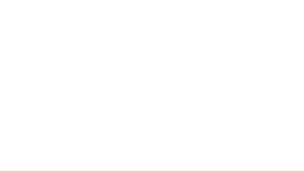2011: An eventful year for education in Wales
- Published

2011 has been a turbulent year for the University of Wales
In the world of higher education it is August, not December, which is usually reserved for a period of annual reflection.
But whether you look at the academic or the calendar year, it's been a bad one for one university in particular.
At the outset of 2011, the University of Wales was still the second-largest degree awarding body in the UK.
But that growth had been fuelled by the practice of validating courses in far-flung colleges around the world.
This was criticised in a damning report by the university watchdog in June.
By late-October, when it was announced the University of Wales would be effectively abolished, few eyebrows were raised.
The decision came after weeks of intense public pressure, sparked by a BBC Wales investigation, which revealed overseas students were being offered help to cheat their way to its degrees.
The registrar, admissions officer and a senior lecturer at one of the university's partner colleges in London were suspended, and the UK Border Agency and Metropolitan Police launched investigations.
All those involved continue to deny and disassociate themselves from any wrongdoing.
By mid-October, even present member institutions had joined the calls for the university to be abolished.
Then, three weeks after the story broke, plans to form a new merged institution under the university's banner were hastily revised, though its vice-chancellor insisted this was not in response to BBC Wales' revelations.
There would still be a merger with two other universities, but in the process Wales' national university would give up its degree awarding powers, its Royal Charter and its name.
Schools overhaul
The nation's school system was also overhauled in 2011.
In a major speech in February, the Education Minister Leighton Andrews complained of "complacency" and "systemic failure" and unveiled 20 reforms to drive up standards.
The proposals were a response to the dismal performance of Welsh 15 year-olds in recent OECD international tests (Pisa), and would soon re-appear in Labour's manifesto for the May 2011 assembly elections, which the party won though without an overall majority.
Since then, little time has been wasted in establishing a new school standards unit, drawing up plans for national reading and maths tests and, most controversially, introducing a new system for banding secondary schools.
In May, BBC Wales published more school performance information than the Welsh Government had in the decade since league tables were abolished.
But in December, Mr Andrews unleashed his own ranking of schools' performance, which drew fierce criticism from teaching unions.
Schools were placed in one of five performance bands based on exam results and attendance.
But the new system, which balances scores to take into account the proportion of pupils receiving free schools meals, has thrown up some surprising results.
It suggests, for example, that a traditionally high-performing school in a leafy Cardiff suburb requires greater support than a school with historically low exam results set in one of Wales' most deprived communities.
Don't be surprised to see the formula tweaked in 2012.
- Published27 December 2011
- Published27 December 2011
- Published11 November 2011
- Published27 October 2011
- Published9 December 2011
- Published8 December 2011